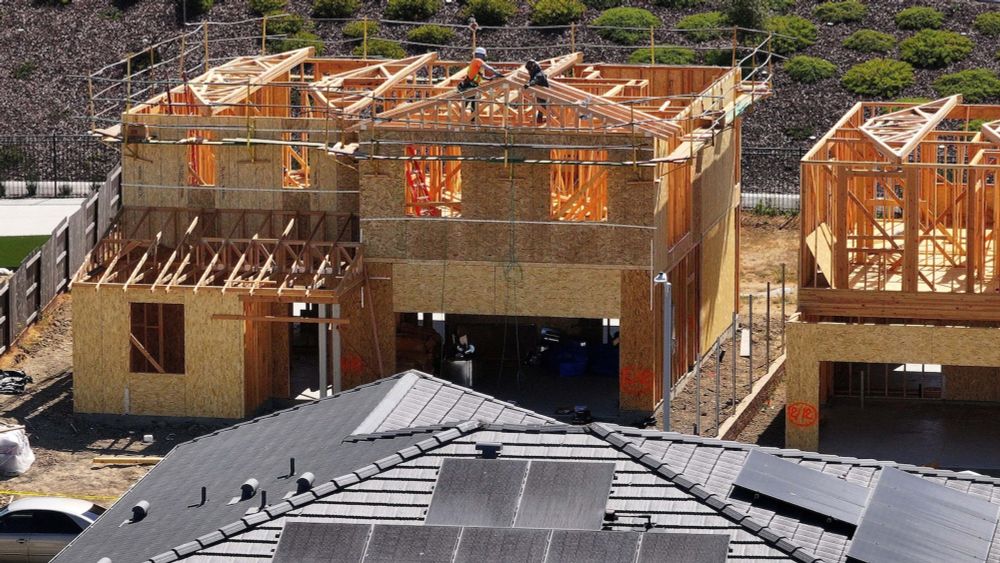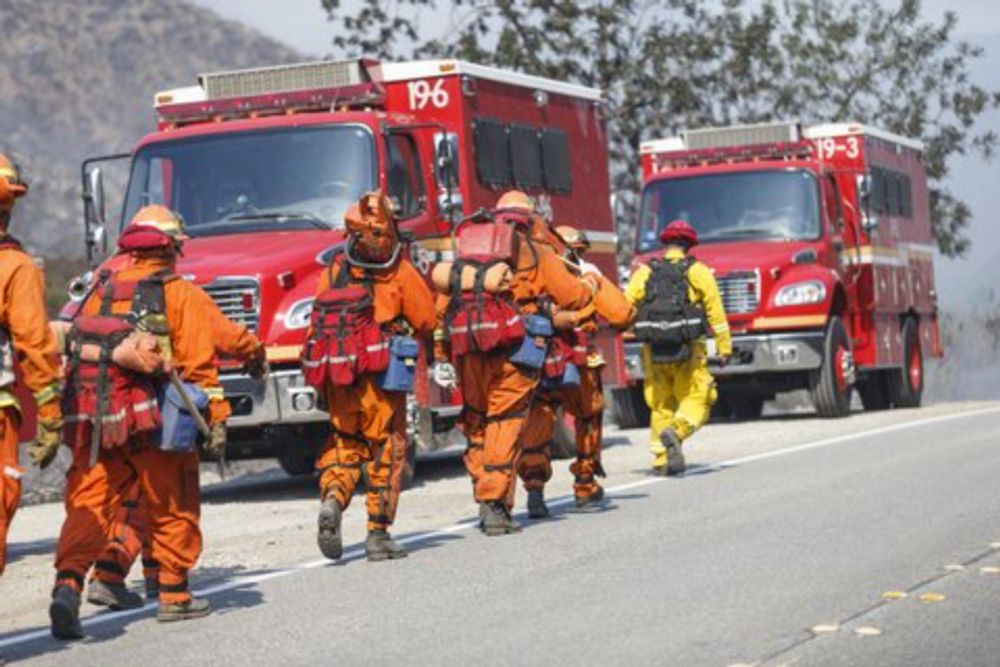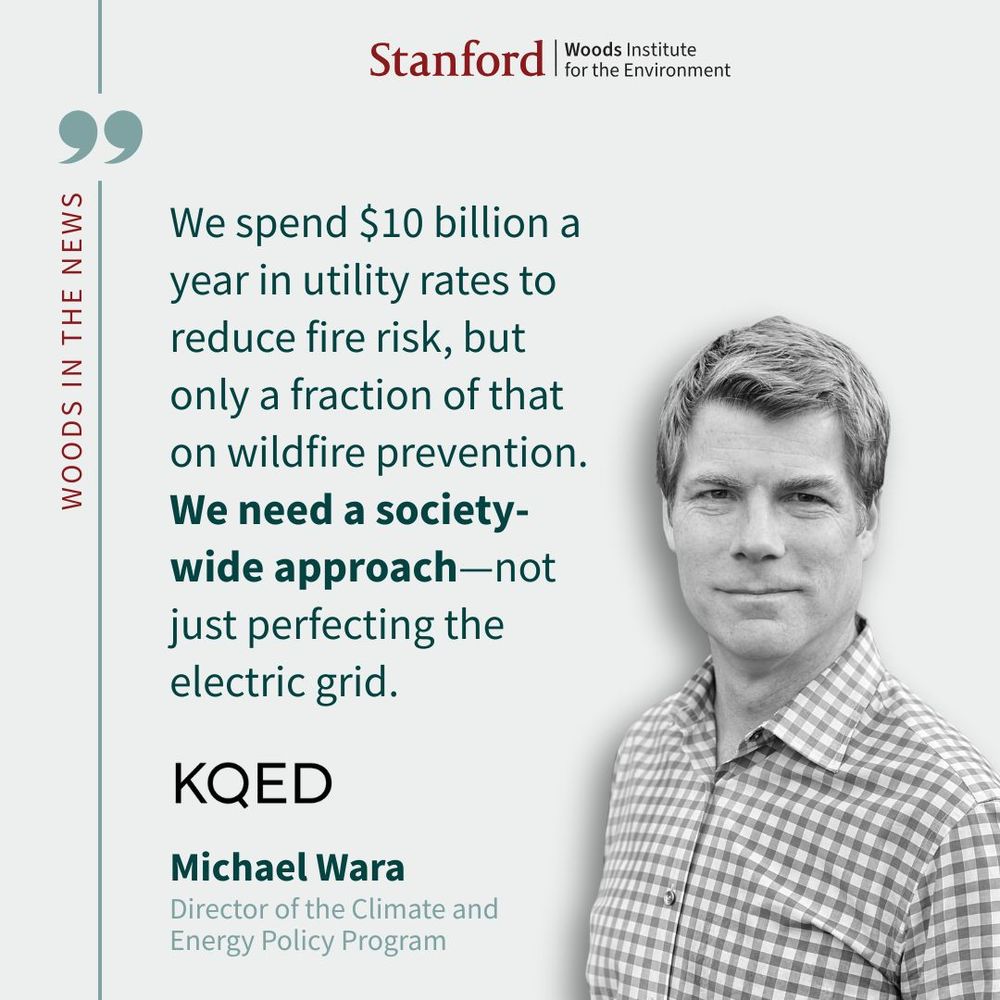
Across the country, electricity bills are rising. Senior research scholar Michael Wara stopped by KQED to break down all the factors driving the increase, from tree trimming to wildfire prevention measures.
Listen here: bit.ly/45m4aZE
#energycosts #wildfires
05.08.2025 17:13 — 👍 0 🔁 0 💬 0 📌 0
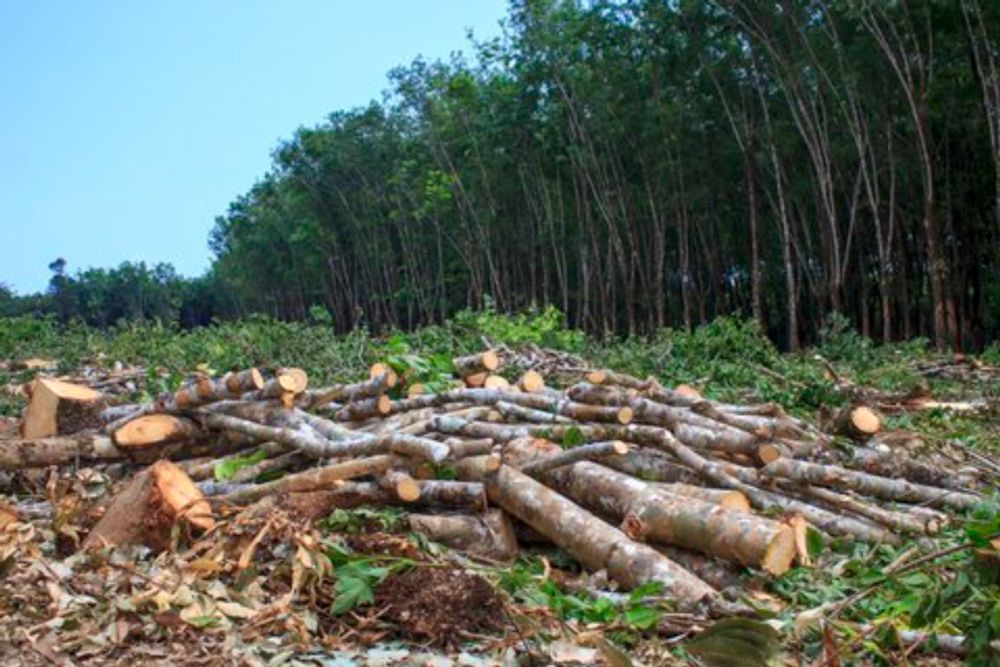
How smarter incentives could help save forests – and support farmers
Stanford researchers are developing new ways to curb deforestation while boosting rural incomes. Their work pairs economic theory with on-the-ground trials to advance practical climate solutions.
🌴 Agriculture is responsible for over 70 percent of global deforestation. Stanford researchers are piloting conservation programs that reward Indonesian palm oil producers for preserving tree cover through scalable, proportional payment systems.
Read more: bit.ly/44S1Hav
29.07.2025 21:26 — 👍 2 🔁 0 💬 0 📌 0
In an era of global change, ocean scientist Fiorenza Micheli and literary scholar Margaret Cohen are coming together to explore people's impact on and connection to the ocean through the "blue" humanities 🌊
Watch the latest #UncommonCollaborators episode 🎥 bit.ly/4mitoPL
24.07.2025 23:32 — 👍 4 🔁 0 💬 0 📌 3
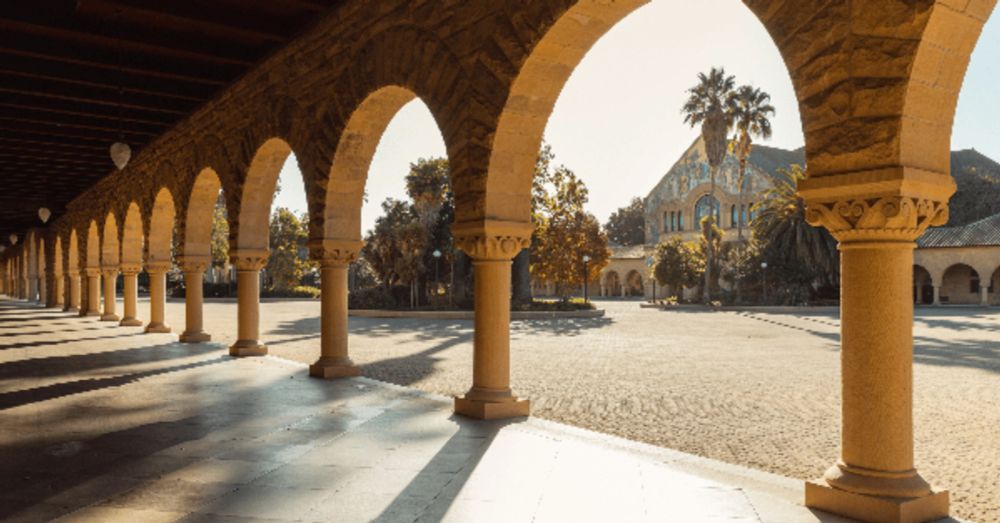
🚨 New job opportunity! | Stanford Woods Institute for the Environment
🚨 New job opportunity!
The Stanford Climate and Energy Policy Program and the Environmental and Natural Resources Law & Policy Program are looking for a Food Systems Resource Economics Fellow.
This...
🚨 New job opportunity!
The Stanford Climate and Energy Policy Program and the Environmental and Natural Resources Law & Policy Program are looking for a Food Systems Resource Economics Fellow, focused on alternative proteins.
Apply here: bit.ly/44IMfxk
#alternativeprotein #sustainabilityjobs
23.07.2025 19:01 — 👍 1 🔁 2 💬 0 📌 0
🌊 We are so excited to share the recipients of the 2025 Big Ideas for Oceans seed grants!
Learn more about these ambitious projects below ⤵️
16.07.2025 19:56 — 👍 2 🔁 0 💬 1 📌 0
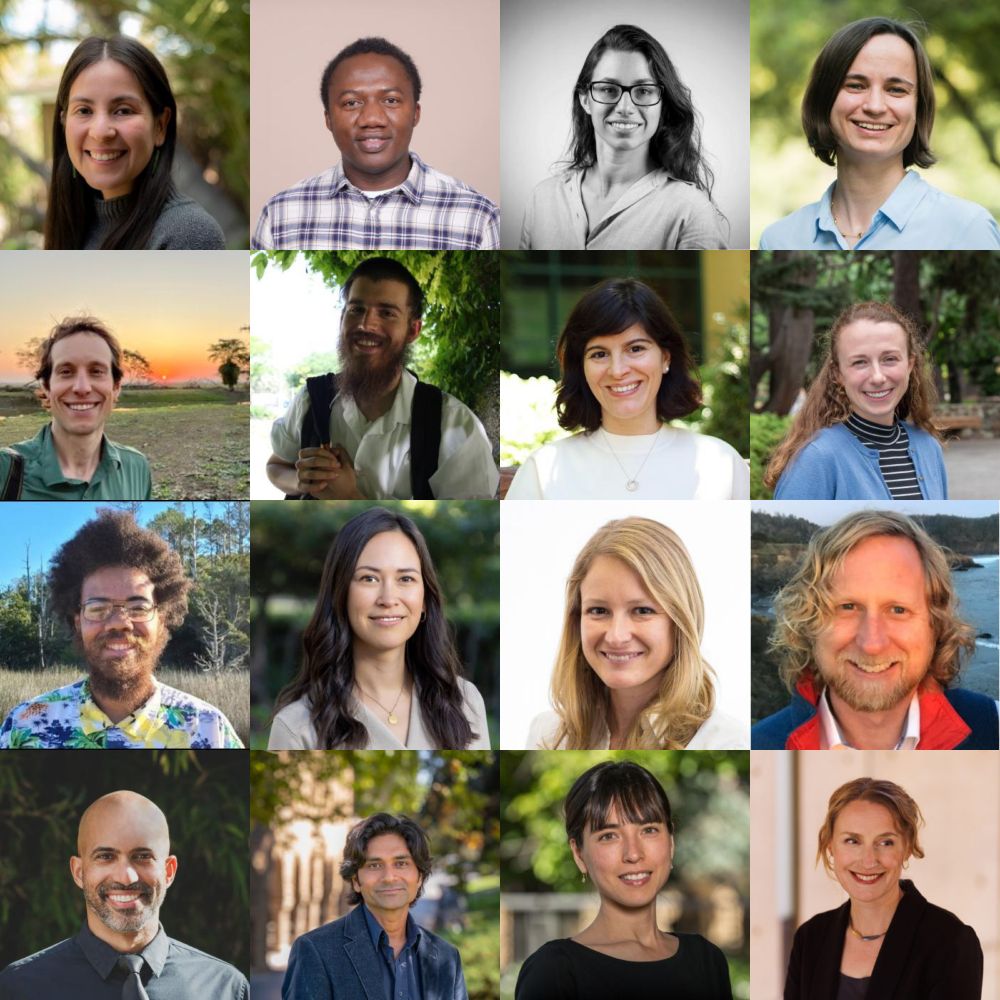
We’re thrilled to announce the 2025 LInC cohort! Relaunched after a pandemic pause, LInC equips early- and mid-career faculty to tackle complex global challenges through interdisciplinary research across law, medicine, engineering, humanities, and sustainability.
Learn more: stanford.io/4lAxK4Q
14.07.2025 18:15 — 👍 4 🔁 0 💬 1 📌 0

Colorado River water market could help fish and farmers alike
A new water market model for the Colorado River basin could improve water security and restore ecosystems amid intensifying shortages.
The Colorado River is in crisis. A new study proposes a water-sharing market to help balance competing needs—supporting both struggling ecosystems and the farmers who rely on the river.
🔗 bit.ly/4lAyhDe
#climatechange #climatesolutions
07.07.2025 20:08 — 👍 2 🔁 1 💬 0 📌 0
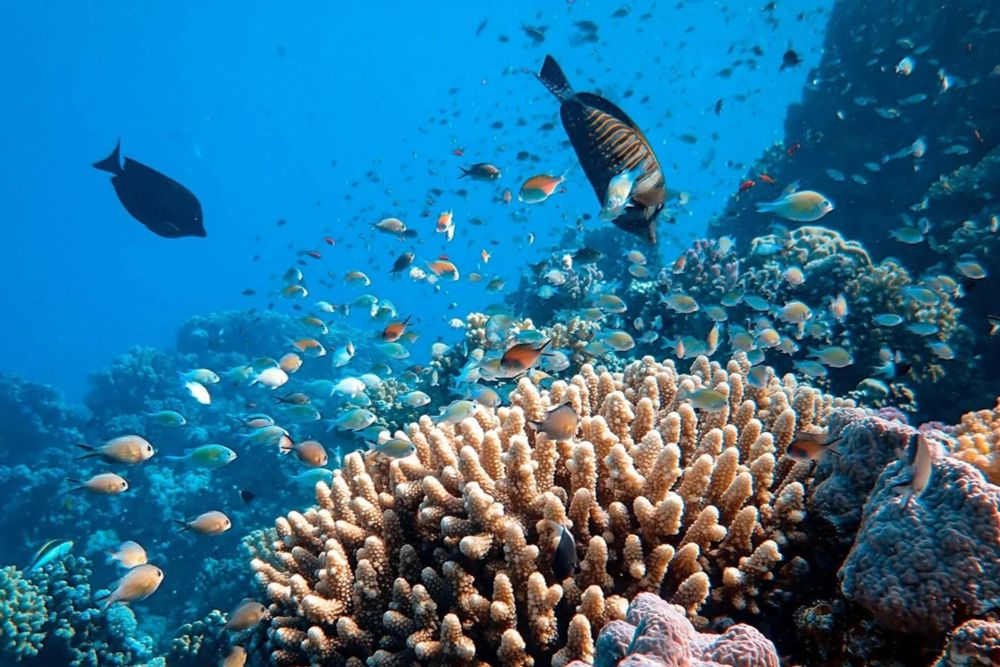
New study shows how biomass changed over 500 million years
The findings strengthen evidence that conserving biodiversity is critical to the health of people and the planet.
A new study reveals that marine biomass has typically increased over the past 500 million years.
Overfishing, pollution, and climate change are accelerating biodiversity loss — threatening the very abundance that has taken hundreds of millions of years to build.
🔗 bit.ly/44KtJEE
02.07.2025 23:24 — 👍 3 🔁 1 💬 0 📌 0
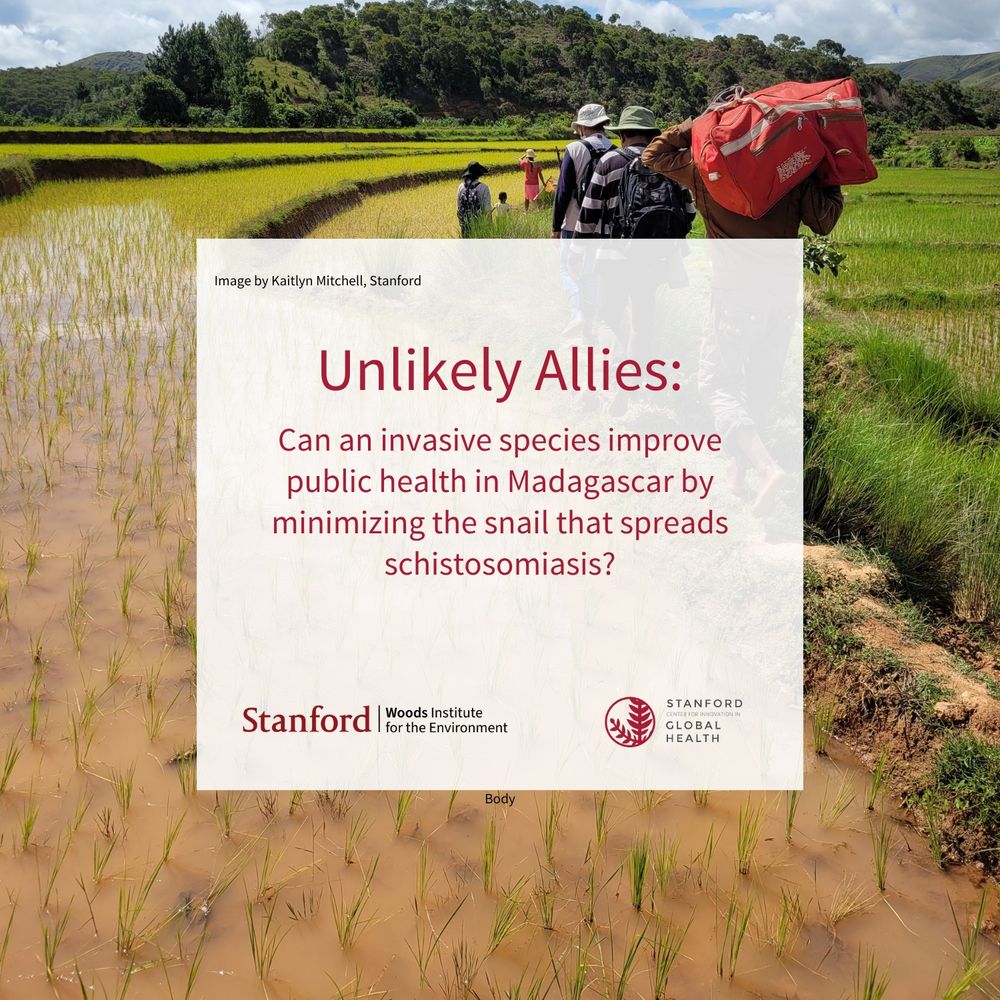
Could an invasive species be a public health secret weapon?
Funded in partnership with stanfordcigh.bsky.social, this Global Health Seed Grant Award supports researchers as they analyze the impact on invasive marbled crayfish on disease-spreading snails.
�� https://bit.ly/4eE3T3TFW
01.07.2025 19:02 — 👍 1 🔁 0 💬 0 📌 0
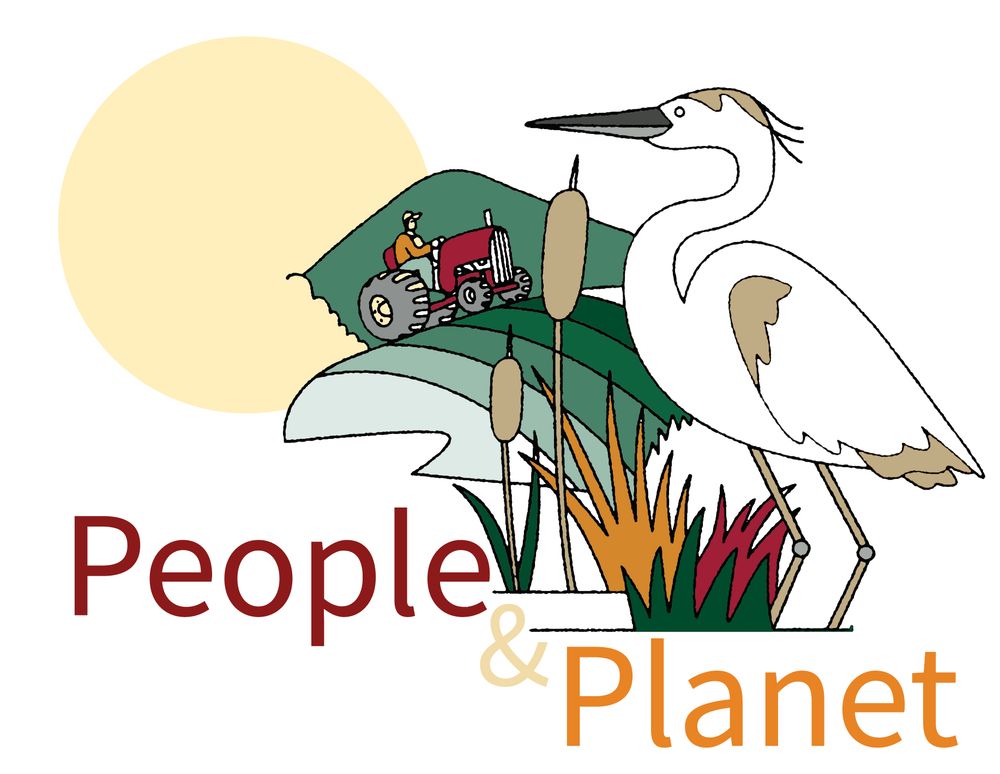
💌 The latest edition of People&Planet, our monthly newsletter, is out now!
We check in on the state of cultivated meat, look into planting trees as a public health strategy, and share events and job opportunities.
Subscribe: bit.ly/3GcHSRM
Read June's edition: bit.ly/44jxD64
27.06.2025 21:04 — 👍 4 🔁 2 💬 1 📌 0
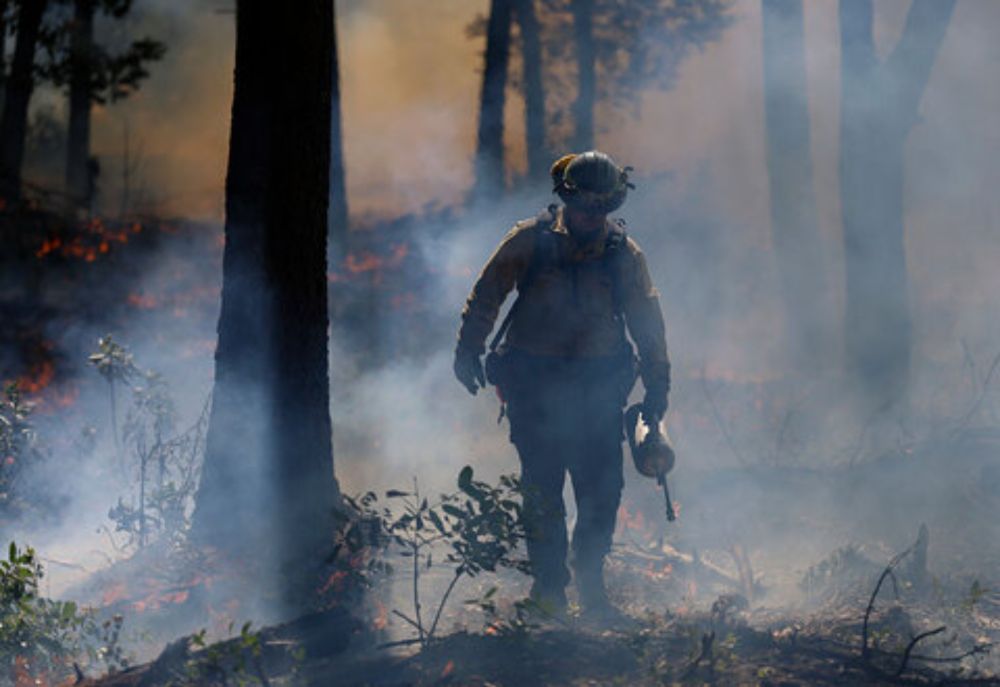
Study shows controlled burns can reduce wildfire intensity and smoke pollution
A new Stanford-led study finds that controlled, low-intensity fires known as prescribed burns can slash wildfire intensity and dangerous smoke pollution across the western United States.
Prescribed burns can reduce wildfire severity by 16% and smoke pollution by 14%, a Stanford study finds.
“The smoke is a silent and far-reaching hazard, and prescribed fire may be one of the few tools that actually reduces total smoke exposure.” - senior fellow Marshall Burke
🔗 bit.ly/4nlf1v9
26.06.2025 22:22 — 👍 7 🔁 3 💬 0 📌 0
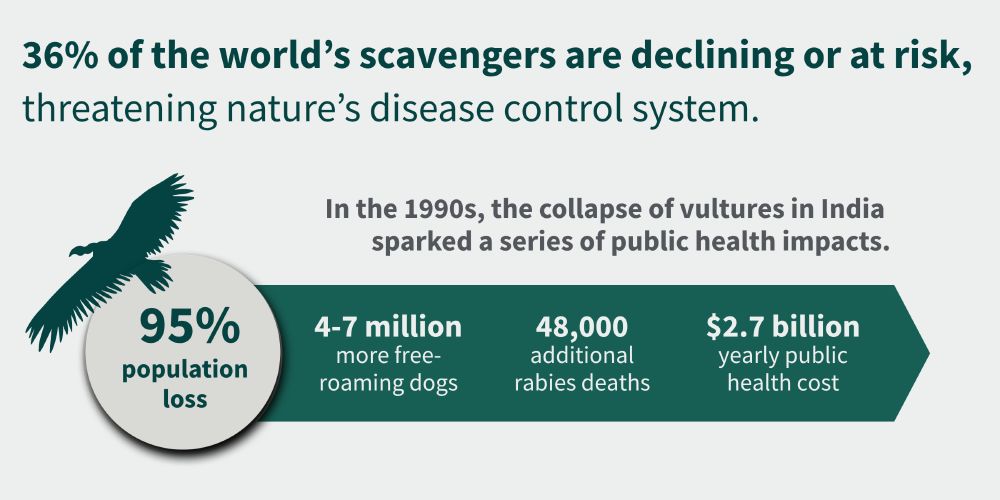
Vultures might not be as beloved as bunnies, but they're key to human health. By eating carrion and culling the populations of smaller scavengers, they help limit the spread of zoonotic diseases.
A new Stanford study found that 36% of the world's scavenger species are in decline.
🔗 bit.ly/4kXmhfi
24.06.2025 17:52 — 👍 4 🔁 1 💬 0 📌 0
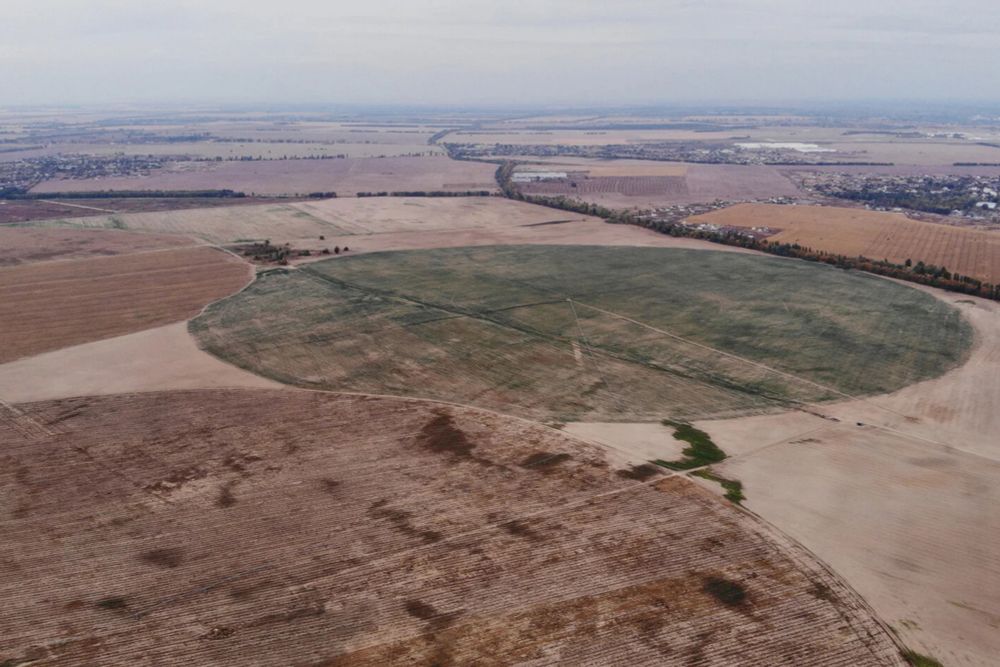
Climate change reduces crop yields worldwide even with adaptation
A sweeping new analysis finds that rising temperatures will reduce global food production despite adaptation and development. Projected losses for U.S. agriculture are especially steep.
A new study finds that for each 1 °C of warming, global crop yields will decrease by 120 calories per person per day.
The U.S. Midwest could be hit hardest, with major corn and soy losses under high-warming scenarios, while cooler regions like China and Russia may see gains.
🔗 bit.ly/3FSQDjP
23.06.2025 17:20 — 👍 3 🔁 2 💬 0 📌 0
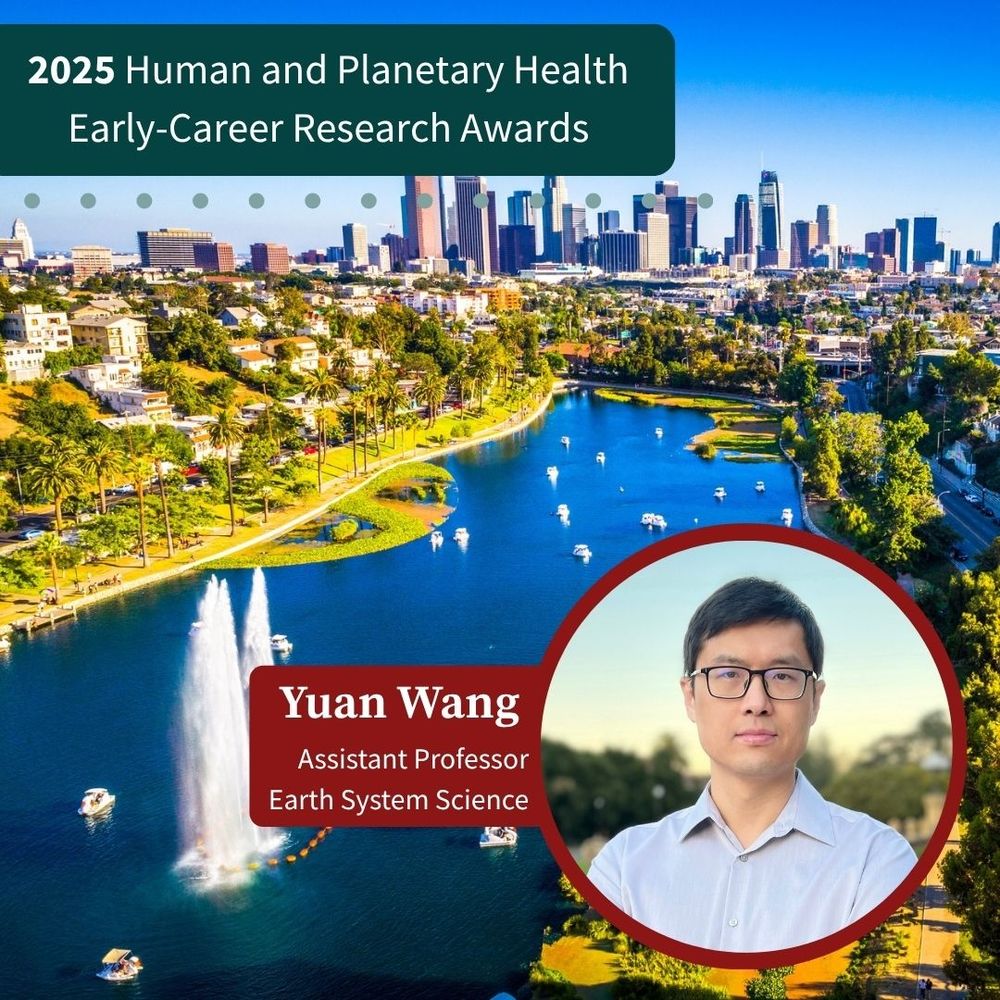
A headshot of Yuan Wang overlaid on a picture of the Los Angeles skyline and an urban park in the foreground. Text reads "2025 Human and Planetary Health Early-Career Research Awards" and "Yuan Wang, Assistant Professor Earth System Science"
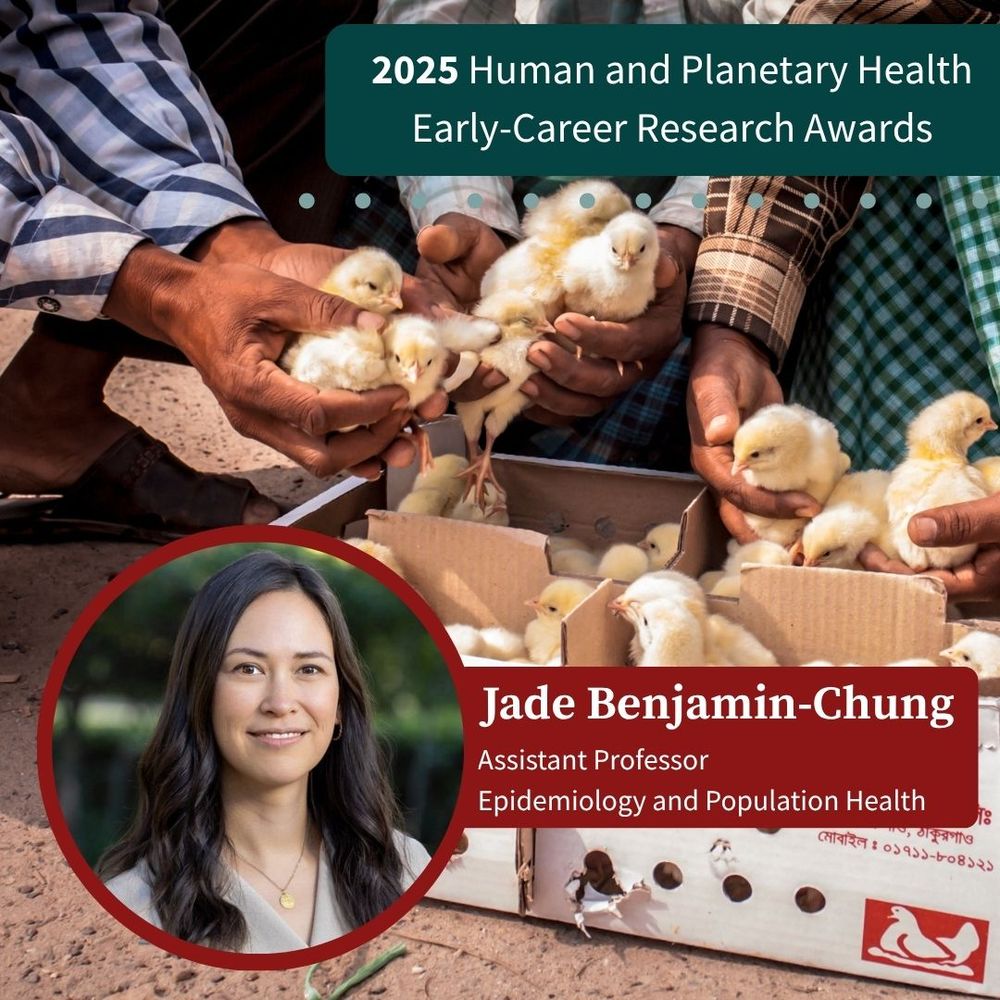
A headshot of Jade Benjamin-Chung overlaid on a picture of three men holding baby chickens above a box. Text reads "2025 Human and Planetary Health Early-Career Research Awards" and "Jade Benjamin-Chung, Assistant Professor Epidemiology and Population Health"
Our 2025 #HumanAndPlanetaryHealth Early-Career Research awards are supercharging projects to investigate how:
🌆 Emissions from urban vegetation impact air quality
🐓 Living together with livestock drives antimicrobial resistance #AMR in rural, low-income communities
Learn more: bit.ly/44cb4Af
21.06.2025 00:09 — 👍 2 🔁 0 💬 0 📌 0
This thread from @oceansolutions.stanford.edu has some great insights from the recent UN Ocean Conference! ⤵️
18.06.2025 21:27 — 👍 0 🔁 0 💬 0 📌 0
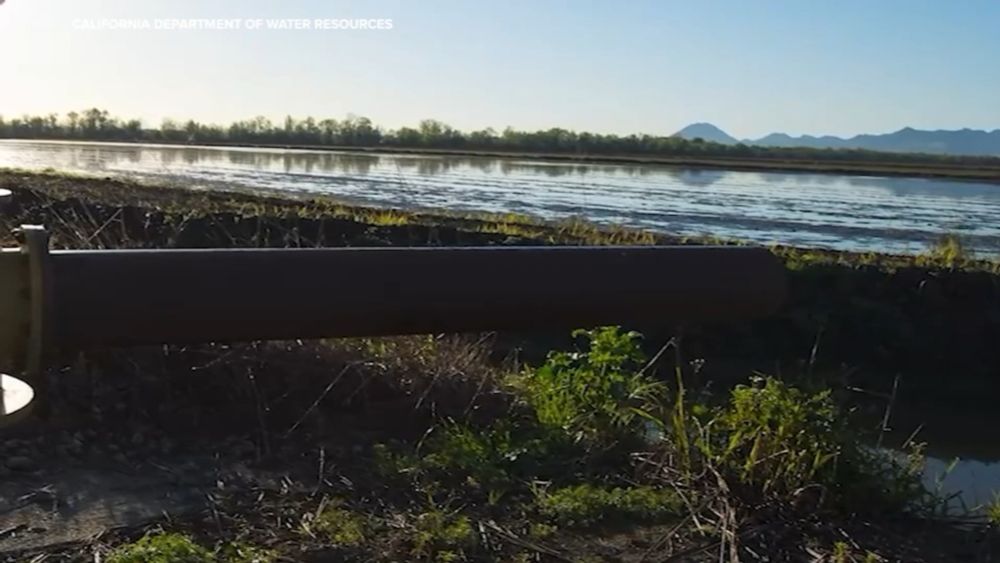
New high-tech maps developed by Stanford could fast track groundwater recharge: Here's how it works
The goal is to rapidly expand the areas where we store water -- not by building reservoirs, but by returning millions of gallons back into the ground in a new and efficient way.
How can we refill California’s groundwater?
Woods senior fellow Rosemary Knight and team mapped 13M+ acres in the Central Valley to guide recharge efforts: “Groundwater is the hidden reservoir… the backup supply we depend on during drought.”
Watch the full segment via ABC7 News 👉 bit.ly/4e6bywo
16.06.2025 19:42 — 👍 4 🔁 4 💬 0 📌 0
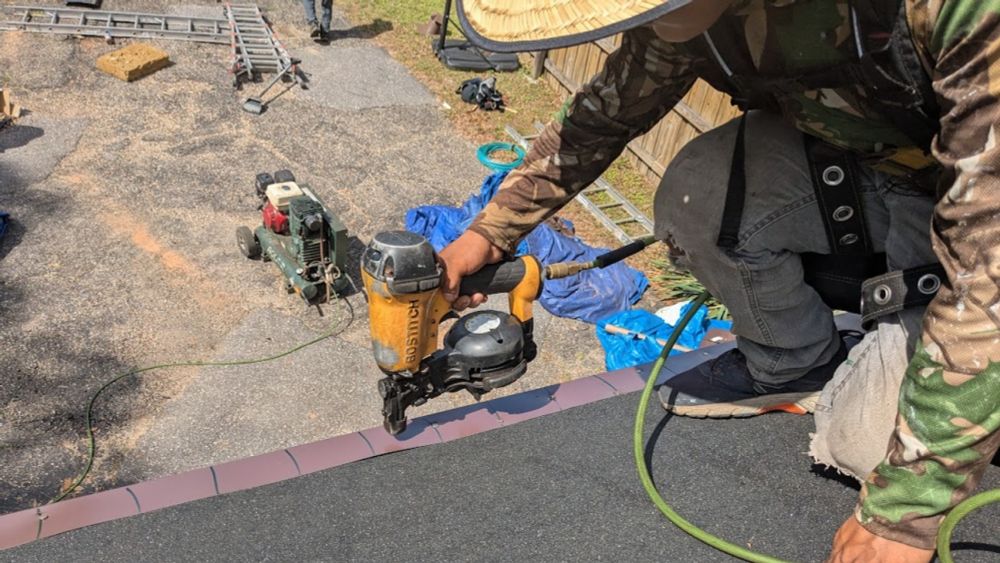
How homeowners are saving on insurance by upgrading their houses against disasters
Home insurance is getting pricier as hurricanes and wildfires get worse. States are trying new incentives, encouraging homeowners to retrofit homes against disasters to get an insurance discount.
As wildfires, floods, and hurricanes threaten more homes across the country, states are offering insurance discounts for weather-proofing measures. But in California, wildfire-related discounts top out around 15%.
@michaelwara.bsky.social says that’s not enough.
Read more: n.pr/4e0DJwN
13.06.2025 23:00 — 👍 0 🔁 0 💬 0 📌 0
Sometimes, solutions are simple. Stephen Luby, Nina Brooks @bostonu.bsky.social, and icddr,b researchers tested a low-cost, low-tech intervention to reduce #pollution from #BrickKilns in Bangladesh, a major threat to public health and the environment.
🎥: bit.ly/4kwdSPe
📝: stanford.io/3FGCK7Y
10.06.2025 18:17 — 👍 1 🔁 1 💬 0 📌 0
Happy World Oceans Day!
Our @stanforddoerr.bsky.social community is celebrating by sharing their work on ocean research and conservation 💙
09.06.2025 15:45 — 👍 3 🔁 0 💬 1 📌 0
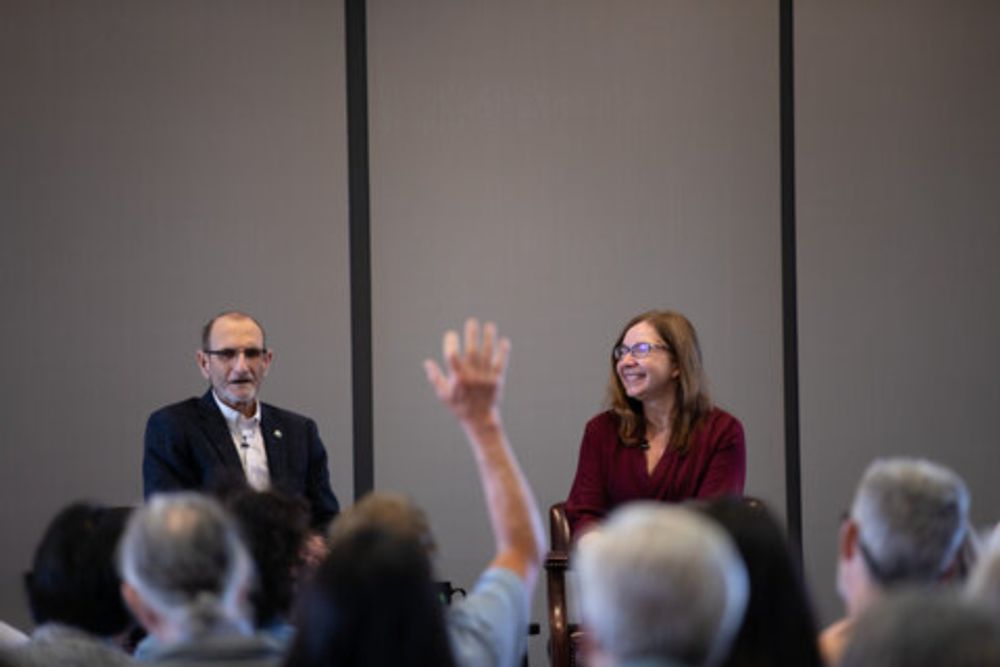
Talking climate change with Katharine Hayhoe
Climate scientist Katharine Hayhoe joined Dr. Chris Field for a wide-ranging discussion on the state of climate progress and public engagement. Hayhoe argues that most people already care about climat...
“Even if we disagree on policy, we often agree on the problem,” Katharine Hayhoe @katharinehayhoe.com said. “Start there.”
Brief article and video of conversation with Chris Field @chrfield.bsky.social, director @stanfordwoods.bsky.social:
woods.stanford.edu/news/talking...
#climate
04.06.2025 22:20 — 👍 5 🔁 1 💬 0 📌 0
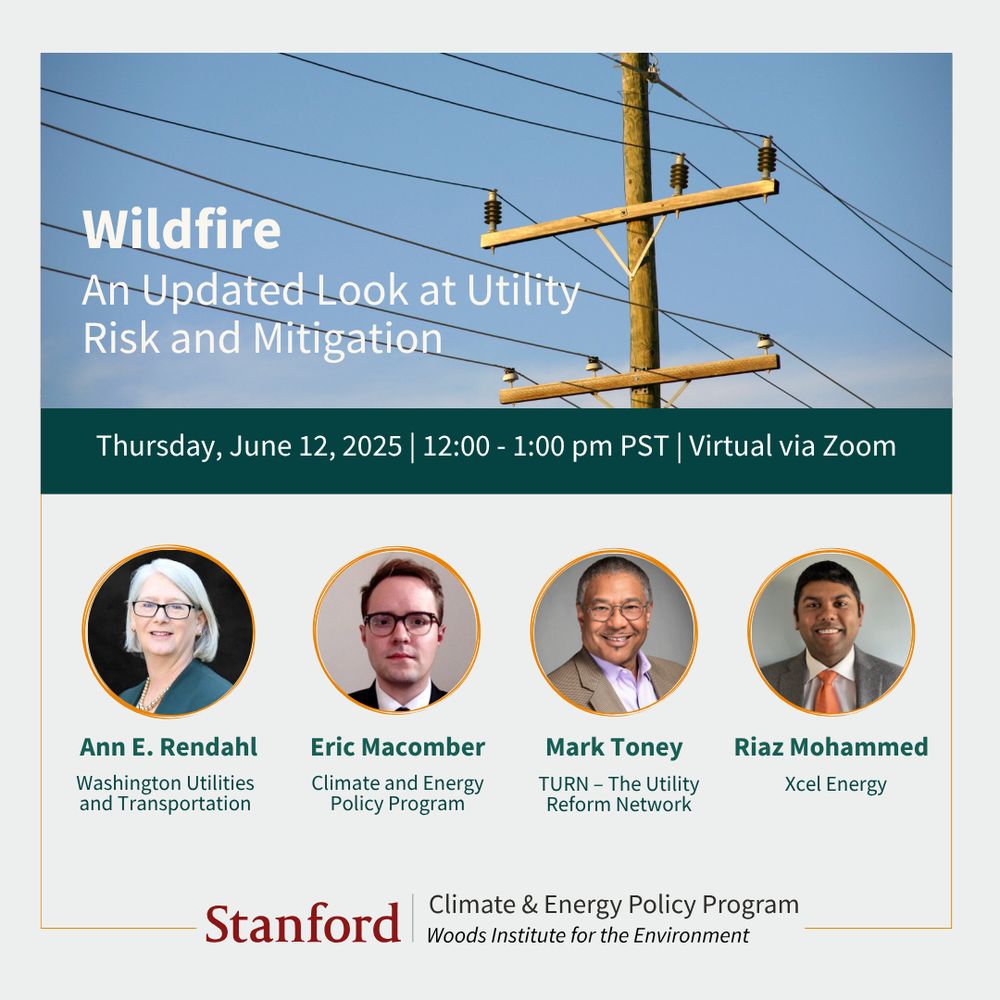
📣 Join us on June 12 for a discussion of wildfire risk mitigation!
Panelists will discuss new findings from the Climate and Energy Policy Program and future strategies for building a safer, more resilient grid.
Register: bit.ly/4dXA9U8
04.06.2025 21:58 — 👍 0 🔁 1 💬 0 📌 0

Stanford at the 2025 U.N. Ocean Conference
The UN Ocean Conference is a week away! #UNOC3
We’re headed to France to join in-person & virtual events on:
🐟 Sustainable blue foods
🌊 Women in ocean science
🎣 Small-scale fisheries
...& more!
Will you be there? Let us know in the comments 👋 ⤵️
oceansolutions.stanford.edu/stanford-202...
02.06.2025 21:56 — 👍 7 🔁 1 💬 0 📌 0
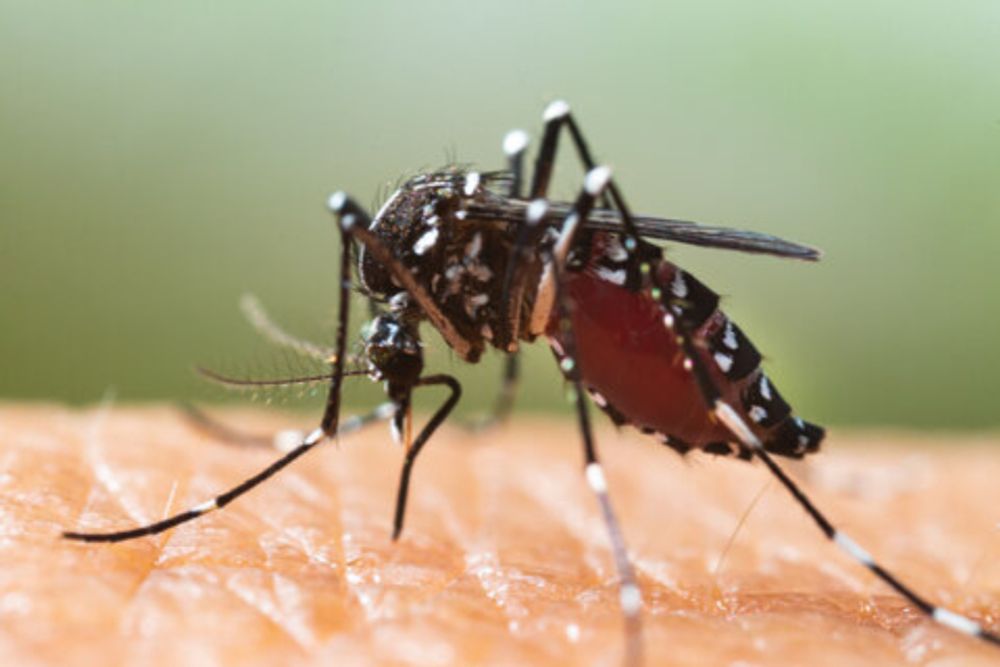
Trees vs. Disease: Tree cover reduces mosquito-borne health risk
Stanford-led study finds small-scale tree cover in Costa Rica boosts biodiversity while limiting dangerous mosquito species
A Stanford-led study finds that even modest patches of tree cover can reduce the presence of invasive mosquito species known to transmit diseases like dengue fever.
The findings can inform land use decisions and tree preservation strategies in rural areas.
🔗 bit.ly/3SMHKv3
29.05.2025 19:16 — 👍 1 🔁 0 💬 0 📌 0
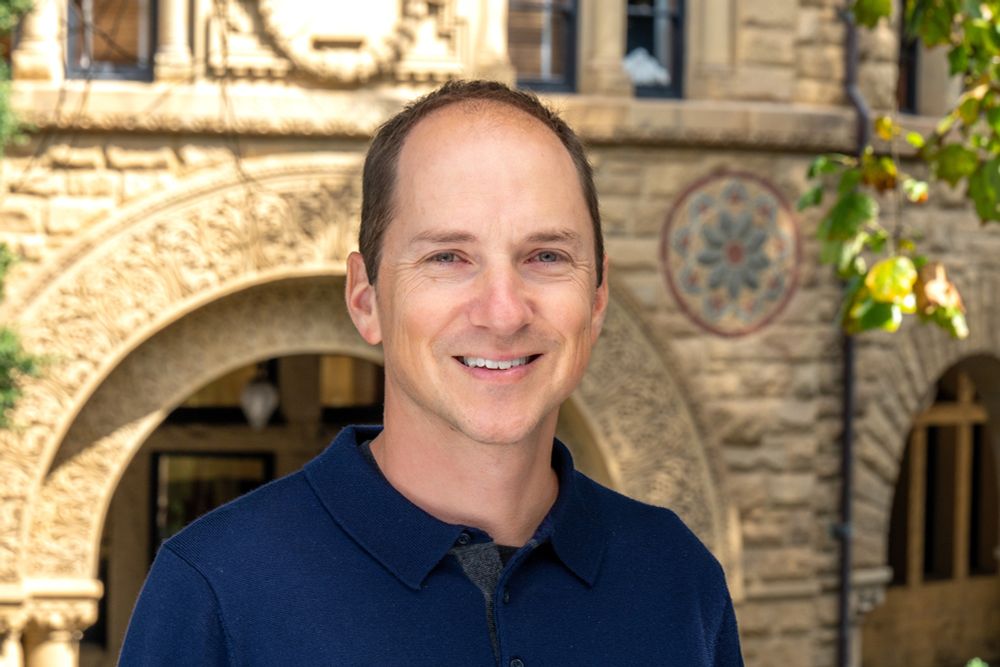
Food expert David Lobell dishes on lab-grown meat
Lobell discusses a record-setting slab of cultivated meat – and what it means for the future of food.
🐔 Japan just unveiled the world’s largest lab-grown chicken nugget—no bird required. Meanwhile, some U.S. states are banning products like it.
So what’s the future of cell-cultured meat—and what could it mean for the planet? Read what our senior fellow David Lobell has to say: 🔗 stanford.io/4kXFRHZ
27.05.2025 21:54 — 👍 1 🔁 0 💬 0 📌 0
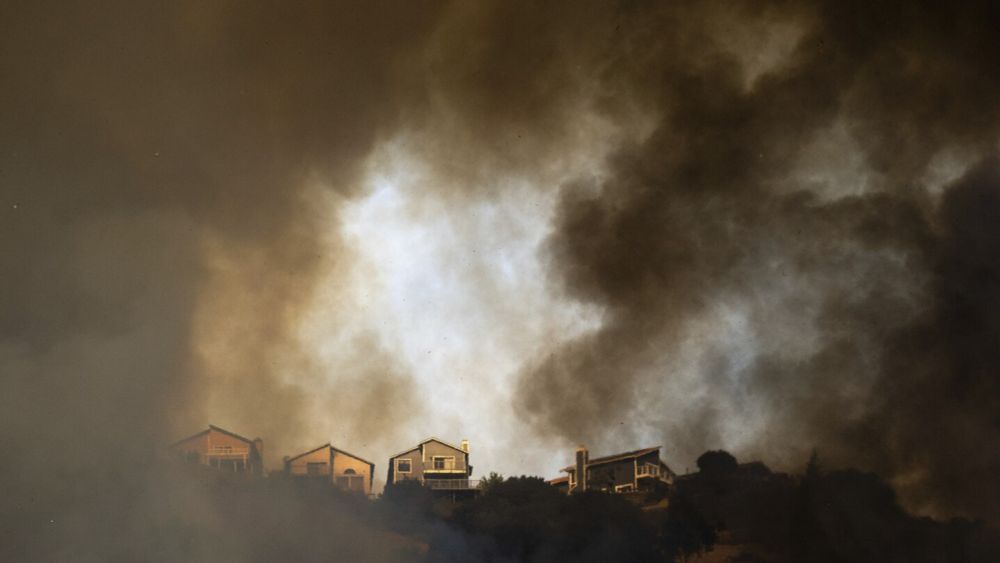
Smoke from climate-fueled wildfires contributed to thousands of US deaths over 15 years, study says
A new study out in the journal Nature Communications Earth & Environment finds that wildfires fueled by climate change are linked to as many as thousands of annual deaths and billions of dollars i...
🔥Wildfire smoke has caused 15,000 deaths in the U.S. over 15 years.
New study links rising PM2.5 from climate-driven fires to major health & economic costs.
We need smarter land use, clean energy, and protections for the most vulnerable.
🔗: shorturl.at/RFK85
#ClimateCrisis #PublicHealth
23.05.2025 21:20 — 👍 2 🔁 0 💬 0 📌 0
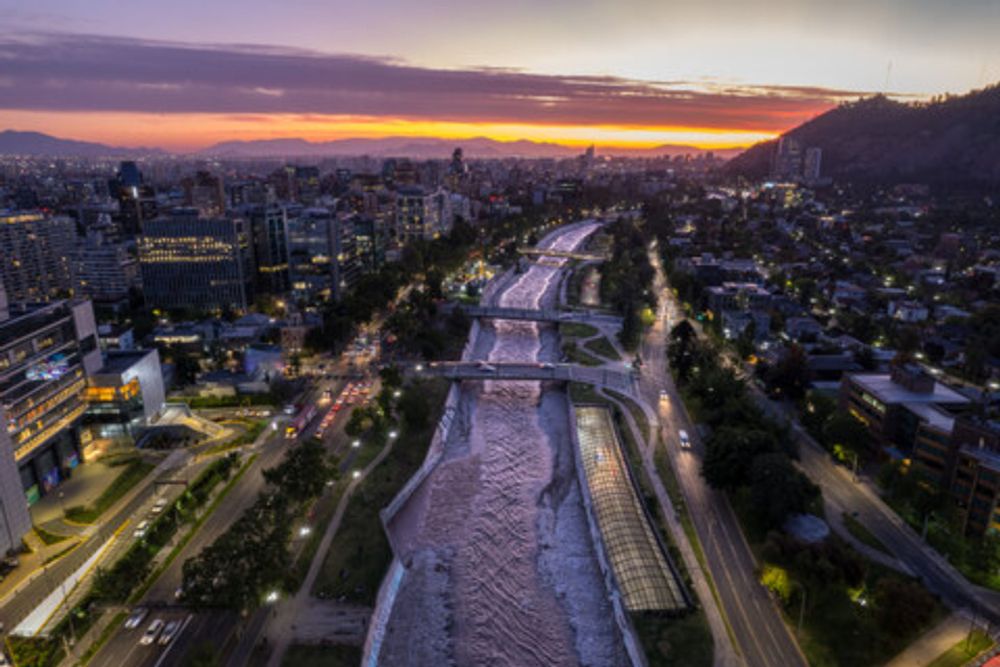
Beyond drought: A new approach to water security in a changing climate
As water becomes more scarce and demand rises, researchers are pioneering a new management approach that can help avert disastrous drought impacts. By collaborating with experts in Chile, the team aim...
Climate change can make drought management tools less reliable. Example: glacial melt can mask risk by providing a significant, but finite, water supply.
Stanford researchers developed a tool to update drought indicators, balancing water needs and long-term climate resilience.
🔗 bit.ly/3Fcr2Sx
21.05.2025 22:07 — 👍 18 🔁 8 💬 0 📌 1
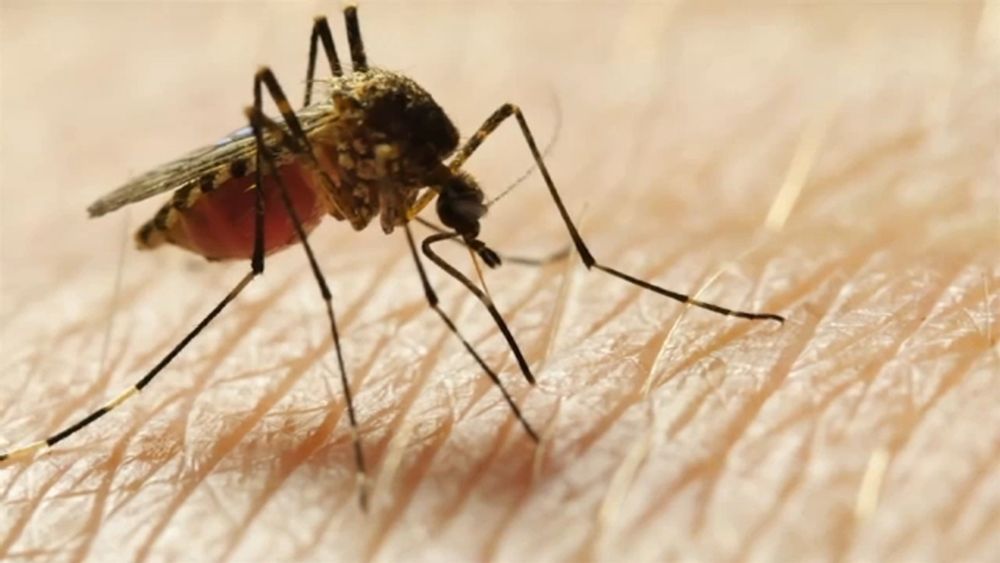
Mosquito season is here early: What to know about protecting your family from disease
With longer, hotter summers and shifting weather patterns, Southern California is seeing mosquito season expand and spread to new areas.
🦟 An unfamiliar, tropical mosquito has made its way to Southern California -- beginning the mosquito season even earlier this year.
"As the climate warms, they are just better and better at spreading disease," said Desiree LaBeaud.
More on how to stay safe @abc7.bsky.social:
bit.ly/3H1qX4G
20.05.2025 17:10 — 👍 2 🔁 0 💬 0 📌 0
Reporter for @nytimes. I cover weather, wildfires and earthquakes. When I'm not working, you can find me swimming in San Francisco Bay.
Our mission of discovery and learning is energized by a spirit of optimism and possibility that dates to our founding.
A diverse group of Calgarians coordinating & mobilizing local climate change action. #yyc #yyccc #ClimateChange #ClimateAction #ClimateSky
Writing about West Coast weather as a Newsroom Meteorologist at the San Francisco Chronicle
Snow lover, Seattle sports fan, University of Washington graduate
sfchronicle.com/author/anthony-edwards/
The Marine Landscape Ecology Lab is part of the University of Washington School of Aquatic and Fishery Sciences. We use drones, GIS, and image analysis to study the marine environment. https://sites.uw.edu/marlel/
Partnership between interdisciplinary researchers, professionals, and leaders working to make valuing natural capital easier and more accessible. Main hub at Stanford University.
Founded in 1977, we are Imperial College's unique interdisciplinary department conducting policy-focused research to solve environmental & sustainability issues
Marine biologist, writer, policy nerd. Co-founder Urban Ocean Lab, think tank for the future of coastal cities. In love with climate solutions.
Every year we work with hundreds of partners - from charities to governments to business - to help them navigate difficult climate communications and unlock more ambitious climate action.
https://climateoutreach.org/
We're a news service that helps you understand climate change and what you can do about it. Get climate solutions in your inbox: yaleclimateconnections.org/sign-up-for-our-weekly-e-newsletter/
Survey research on public views of science & environment; climate change; human/environment interactions; society in the Arctic. Also: walking with my dog through the woods, and gazing at the night sky.
Climate, extinction, and biodiversity scientist at UMaine, researching Earth’s past for a better future. Writer and podcaster for the planet. Chaotic good professor. Forever DM. Working to be a good ancestor. She/her. #BiInSci
Scientist/Author/Speaker; Presidential Distinguished Prof/Director Center for Science, Sustainability & the Media/Vice Provost for Climate, U. Penn; National Academy of Sciences; Royal Society; Tyler Prize
Climate scientist @lunduniversity.
Research: high-impact climate action from 🙋🏻♀️to🌎; sustainable food systems; wine; climate education & communication.
Newsletter: https://wecanfixit.substack.com
Bestselling author: https://bit.ly/3fcf2yT
Pod soon!
Reporter, NYT Climate.
email: brad.plumer@nytimes.com
signal: bradplumer.54
Earth science PhD-turned journalist. I write about clean energy, tech sustainability, and the science of science fiction.
Website: maddiestonewriting.com
Newsletter: sciof.fi
Environment & Science Editor with Irish Times… special interest in climate change, biodiversity, renewables, sustainable food. Co-author of Supergrid Super Solution.
White House and climate policy reporter at POLITICO's E&E News.
swaldman@politico.com
Signal: @waldman.04
Executive editor, Cipher News. Former Axios, WSJ, National Journal. You’ll find energy/climate news here, along with a smattering of pretty nature.
A collaboration of more than a dozen news organizations dedicated to exploring the human, environmental, economic, and political impacts of our changing climate, and sharing our work with a wide audience.
Find us at: ClimateDesk.org






